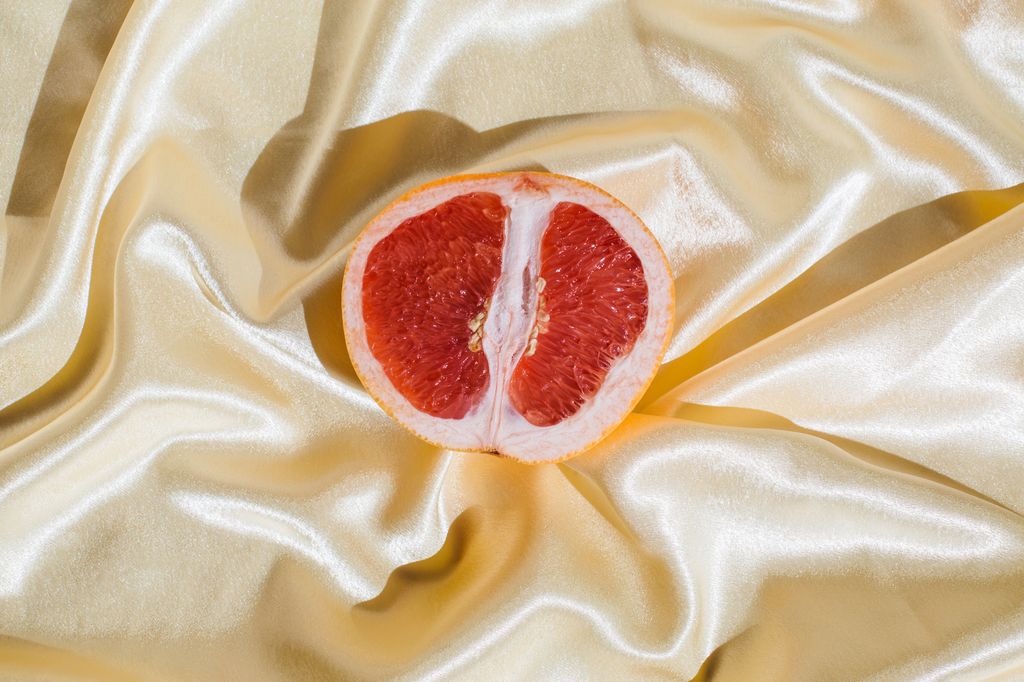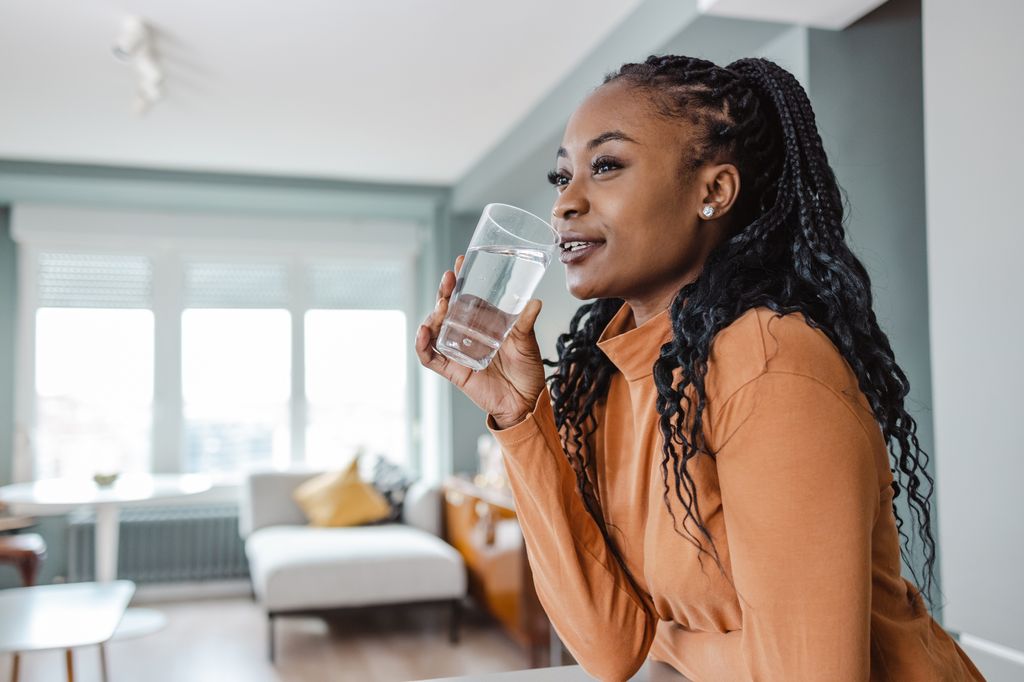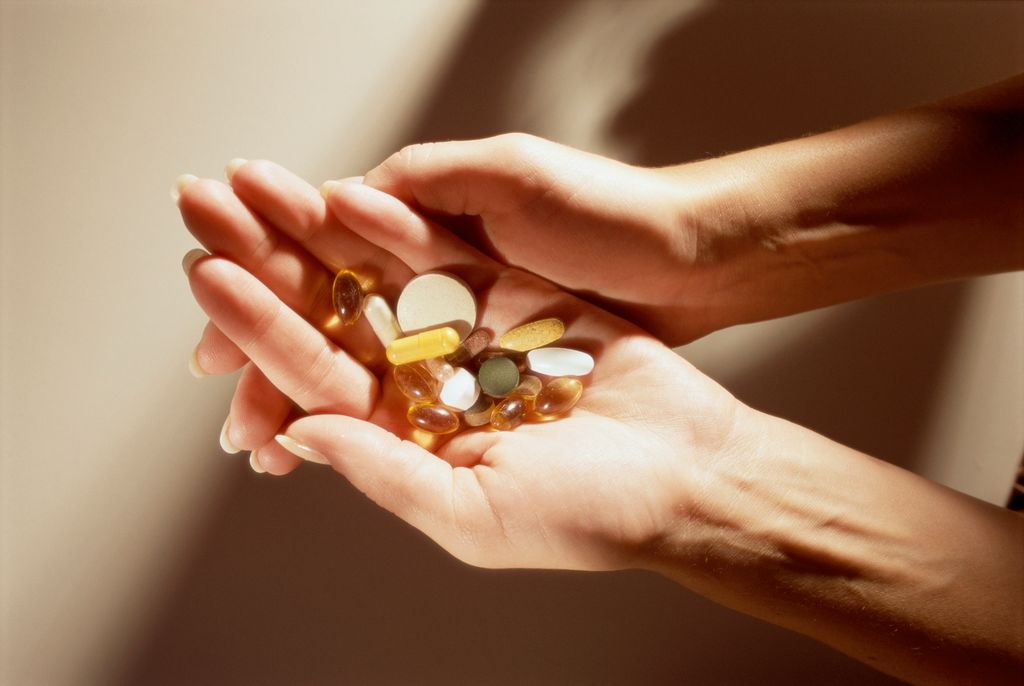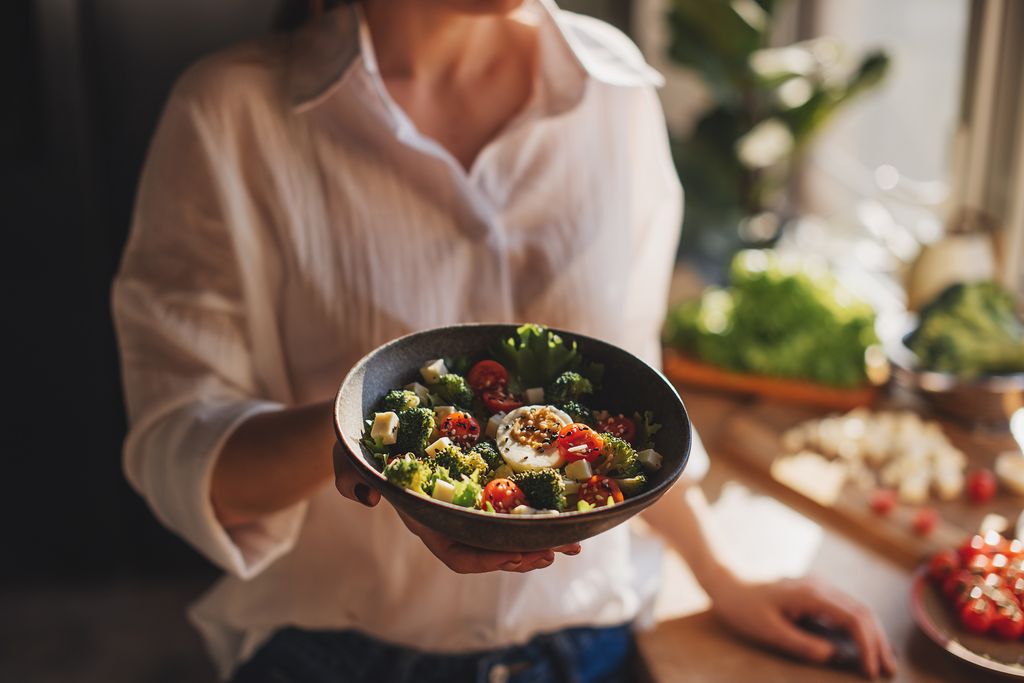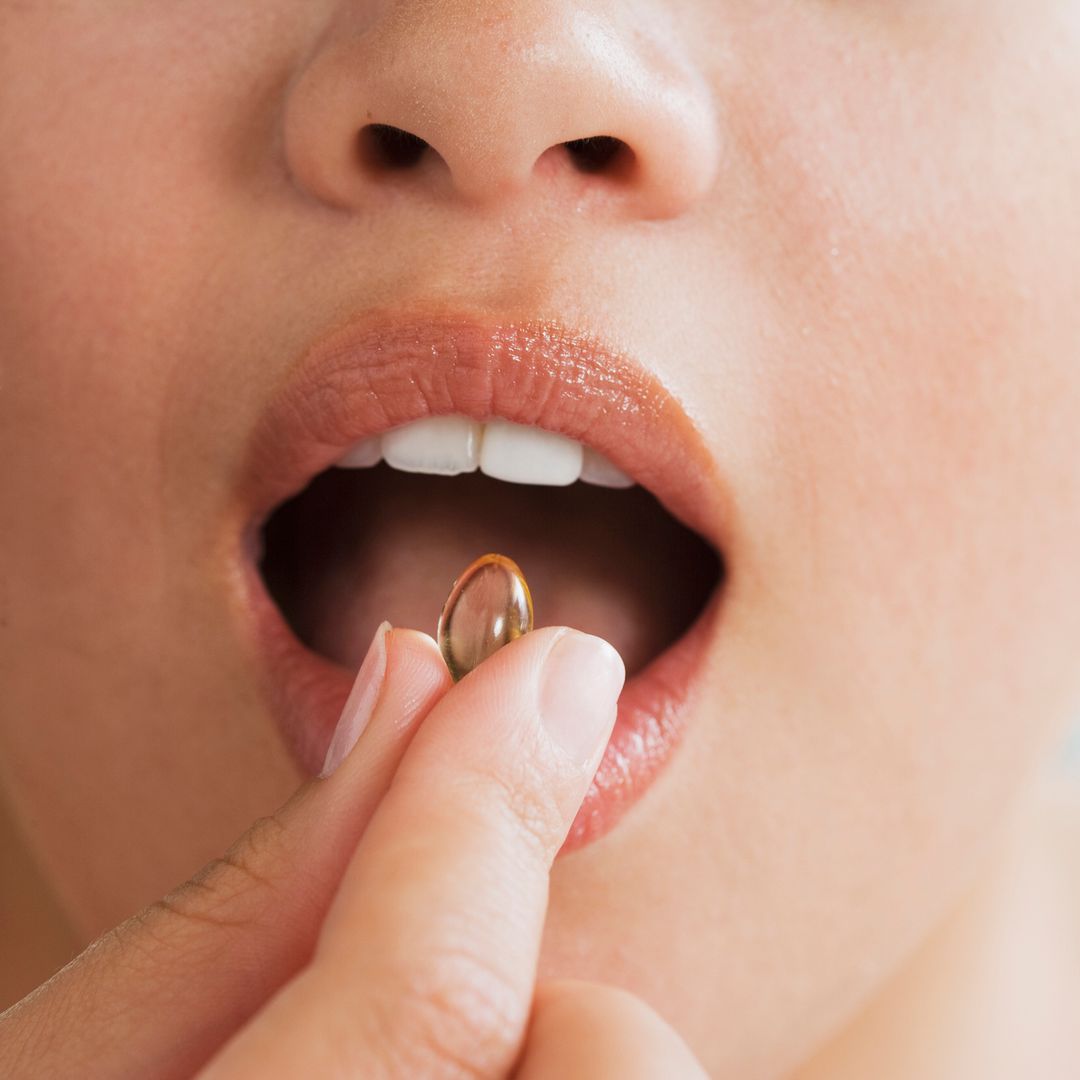When Davina McCall spoke frankly about her experience with vaginal dryness, women breathed a collective sigh of relief.
Finally, the condition, which Davina called "debilitating and painful," was getting airtime, hopefully making it less of a stigma. Watch her speak openly below...
It's been two years since Davina spoke about her "dry vagina," and yet, 51% of women are still embarrassed to talk about it, according to research by ethical supplement and nutrition brand, Dr. Vegan.
Their research also showed that 55% of women asked said they experience vaginal dryness, meaning over half of women are walking around feeling uncomfortable.
"The persistent discomfort can affect day-to-day activities and make movement uncomfortable, which can lead to a reduction in overall wellbeing and frequent low mood," says Shona Wilkinson, Lead Nutritionist at Dr. Vegan. "The taboo nature of the topic can also lead to embarrassment and anxiety, which can lead to a reduction in confidence."
What causes vaginal dryness?
Shona explains that vaginal dryness is primarily caused by hormonal changes, particularly a reduction in oestrogen, which can often occur during menopause, after childbirth, or whilst breastfeeding. "Essentially, the reduction in oestrogen can lead to a reduction in vaginal moisture, which in turn leads to dryness and discomfort," she explains.
READ: What a women's health expert wants you to know about vaginal prolapse
"Other common causes include certain medications (especially antihistamines or antidepressants), cancer treatments, or autoimmune disorders, as well as psychological factors such as stress and anxiety. Importantly, certain lifestyle choices can also contribute to vaginal dryness, including smoking, excessive alcohol consumption, and the use of highly-perfumed soaps."
Vaginal dryness in menopause
Vaginal dryness is most commonly experienced during menopause or perimenopause, mainly due to the steep reduction in the body's production of oestrogen, explains Shona. "This is because oestrogen is essential for maintaining the vagina's moisture and overall health, so when oestrogen levels decrease, the vagina's lining becomes thinner and less lubricated."
She explains that postpartum and breastfeeding is another time of dryness due to fluctuating hormonal changes, though sometimes this dryness is only temporary.
"Those undergoing chemotherapy, radiation, or other medical treatments might also experience dryness due to the treatments' effects on oestrogen production, while those under immense stress might also experience dryness due to the effect of stress and anxiety on our hormones."
Luckily there are ways to manage vaginal dryness, says Shona.
READ: Why taking care of your intimate health shouldn't be a luxury
How to manage vaginal dryness
1. Stay hydrated
Staying hydrated is essential for our overall health, which includes maintaining vaginal moisture. Specifically, staying hydrated helps to keep the vaginal lining healthy, without which a reduction in natural lubrication occurs. Drinking enough water also supports the body's ability to produce natural secretions and reduce the risk of discomfort or irritation, so it's important to ensure you take enough water on board throughout the day.
RELATED: Clear brain fog with this totally free menopause hack you probably haven't thought of
For women, it's recommended you consume over two litres a day, though this can change based on your environment or whether or not you're pregnant.
2. Take a regular probiotic
Taking a regular probiotic specifically tailored for the vaginal microbiome, such as Dr. Vegan's award-winning pH Hero, is essential for overall vaginal health. Probiotics play a crucial role in maintaining the acidic pH of the vagina, creating an environment that discourages the growth of harmful bacteria. By promoting a balanced vaginal microbiome, probiotics prevent infections and support optimal moisture levels.
3. Remain sexually active
Regular sexual activity promotes blood flow to the genital area, maintaining vaginal elasticity and moisture. It also has a whole host of other benefits, including relieving stress, improving sleep, reducing inflammation in our body, and improving our immunity - all of which contribute to improving vaginal health.
4. Use the right intimate products
Using the right soaps and lubricants is essential in both combating and preventing vaginal dryness and maintaining overall vaginal health. The vagina's pH balance and natural microbiome are easy to disrupt, especially with highly-perfumed soaps and chemicals.
Harsh soaps can strip away the natural oils and good bacteria that keep the vagina healthy, so it's important to use natural, gentle, fragrance-free soaps where possible to support an environment for these to thrive. It's also often the case that these harsh soaps can trigger an allergic reaction of some kind, which can exacerbate dryness.
Outside of soaps, try using water-based lubricants where possible during intimate moments, and apply natural oils such as coconut oil or vitamin E oil to help keep the vaginal tissue moisturised.
READ: How teenage embarrassment inspired me to help other women
5 . Avoid stress
Stress is a common symptom of menopause and can contribute to vaginal dryness if left unmanaged. Stress also triggers the release of cortisol, which can interfere with your body's ability to produce oestrogen, leading to further discomfort.
READ: Is stress making your menopause worse? An expert explains
6. Eat the right foods
Your diet can help combat vaginal dryness by promoting hormonal balance, hydration, and overall health. Read on for what to add to your diet...
- Omega 3 fatty acids: Found in fatty fish, flaxseeds, chia seeds, and walnuts, these healthy fats help reduce inflammation and promote hormonal balance.
- Avocados: Rich in healthy fats, avocados support the body’s natural lubrication.
- Probiotic-rich foods: Probiotic-rich foods such as Yogurt, Sauerkraut, and Kimchi all support a healthy vaginal microbiome.
- Water-rich foods: Cucumbers, watermelon, and oranges help keep the body hydrated, which is essential for maintaining vaginal moisture.
- Avoiding processed foods: Avoiding processed foods, foods high in sugar, and cutting down on alcohol can also contribute to overall wellbeing and help maintain vaginal health.


